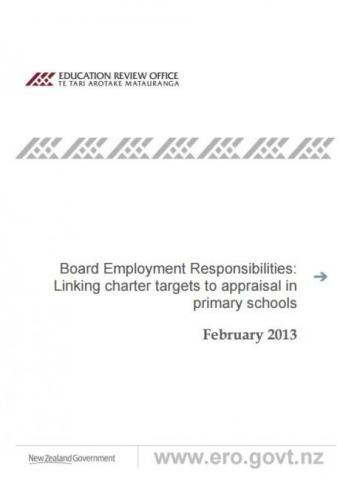Supporting school improvement through effective teacher appraisal
Published: 16 May 2014
In 2013 the Education Review Office (ERO) evaluated the quality of teacher appraisal systems in schools using online surveys of principals and information from 200 school reviews. This report presents the findings of ERO’s evaluation of schools’ approaches to teacher appraisal.
- Audience:
- Schools
- Content type:
- Research
- Topics:
- Appraisal
- Teachers | Kaiako
- Self-review



